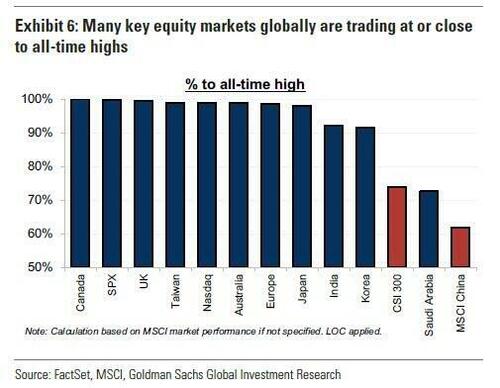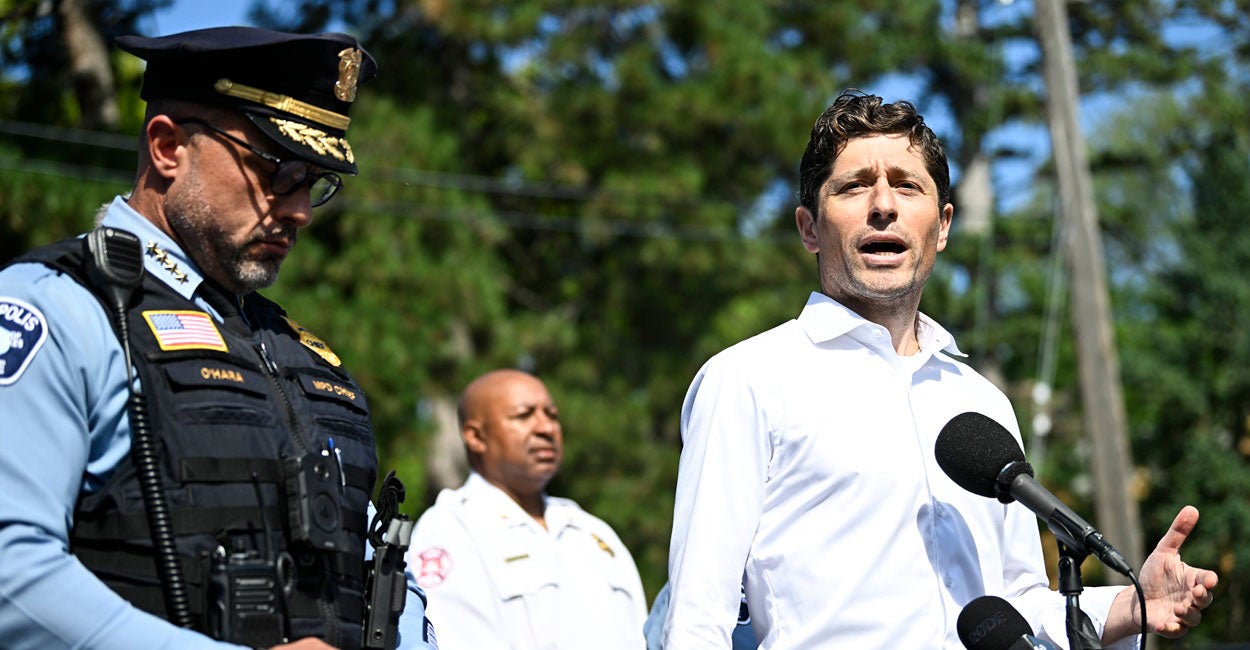Liberal Anti-Energy Policies Have Cost Canada $670B in Past Ten Years
Source: The Iron Wire
(0:00 - 0:12) Good evening, I'm Hannah Bern. And I'm Will Dove, and these are the top stories for Friday, June 13th. In this evening's news, Israel launched a major attack on Iran last night, targeting nuclear facilities. (0:13 - 0:28) An Ontario Christian group is preparing to begin legal proceedings against the province over freedom of speech rights. Kris Sims of the Canadian Taxpayers' Federation reveals what Ottawa's anti-energy policies are costing Canada. And the figure is astronomical. (0:28 - 0:48) And we explore the real reason why Canada sold off its gold reserves. And as much as it pains us to say it, it wasn't really Justin's fault. Overnight, Israel carried out a sweeping series of military strikes on Iranian territory, targeting nuclear sites and senior military and scientific personnel. (0:49 - 1:23) These actions have sharply escalated regional tensions, prompting warnings, condemnations, and threats of further violence from both sides. Israel's military, the IDF, stated that it struck multiple targets, including what it described as nuclear facilities, and confirmed that several top Iranian commanders, among them Revolutionary Guard Chief Hossein Salami, were killed. Iran's state media reported that six scientists perished in the attacks, and that civilians, including children, were among the dead. (1:24 - 1:38) Though these figures are unverified by independent sources. Iranian officials claim that 78 people were killed and 329 injured. But again, these numbers are not independently confirmed. (1:39 - 2:12) Shortly after the Israeli operation, Iran launched approximately 100 drones toward Israel, most of which were reportedly intercepted by Israeli defenses. In response, Iranian state television vowed to avenge those killed in the attack, with new IRGC head Mohammad Pakpour warning Israel would suffer a bitter and painful fate with huge and destructive consequences. Iran's Supreme Leader Ayatollah Ali Khamenei promised severe punishment for the Israeli aggression. (2:12 - 2:44) The strikes appeared to have three main objectives, damaging Iran's nuclear program, weakening its defense capabilities, and targeting its scientific and military leadership. Israeli officials have long described Iran's nuclear ambitions as an existential threat. Notably, the Natanz Uranium Enrichment Facility, a site central to Iran's nuclear program, was among the targets, with verified footage showing smoke billowing from the area following the attack. (2:45 - 3:15) International Atomic Energy Agency assessments note that Iran could theoretically produce up to nine nuclear bombs if its uranium stockpile were further processed to military grade. Israel insists that the strikes were necessary action to protect its citizens from an advanced and urgent threat. U.S. President Donald Trump, who confirmed he was aware of Israel's plans before the attacks, has urged Iran to make a deal or face even more brutal Israeli actions. (3:16 - 3:48) Trump stated that he gave Iran a 60-day ultimatum to reach a nuclear agreement prior to the strikes and warned Iran now has a second chance to negotiate. U.S. officials told Americans to leave the region ahead of the impending hostilities, indicating knowledge of the operation before it occurred, though the U.S. officially denied supporting the Israeli strikes. Global markets reacted immediately, with Brent crude oil prices jumping over 7 percent to nearly $73 a barrel. (3:48 - 4:21) Meanwhile, world leaders, including French President Emmanuel Macron, German Chancellor Friedrich Merz, UK PM Keir Starmer, and others, called for restraint and de-escalation. Condemnations of Israel's actions came from Turkey, Saudi Arabia, Oman, and China, with China expressing deep concern and urging both sides to avoid further conflict. The U.N. Security Council has scheduled an emergency session at Iran's request to address what it described as a violation of international law. (4:23 - 4:58) Israel's ambassador, Danny Danon, defended the strikes as an act of self-defense, claiming that Iran had advanced significantly toward nuclear weapons capability and had planned aggressive actions. As of now, tensions remain at a perilously high level, with Israel continuing military operations and both sides warning of further escalation. A Canadian Christian-based political action group is taking legal action against the City of London, Ontario, over its 2022 municipal bylaw that restricts pro-life messaging. (4:59 - 5:38) The Association of Reformed Political Action Canada, ARPA, filed an application with the Divisional Court in London on June 12, 2025, seeking to have the bylaw struck down as unconstitutional. The group argues the regulation violates Canadians' charter rights to freedom of conscience, religion, and expression, and exceeds municipal jurisdiction. London's controversial 2022 bylaw, which was the first of its kind in Canada, prohibits the delivery of flyers containing any image of a fetus to private residences unless the material is placed in a sealed envelope bearing a warning that it contains a graphic image that may be offensive or disturbing to some people. (5:39 - 6:14) According to ARPA's public statements, the bylaw uniquely defines graphic image as any image of a fetus, which would include standard ultrasound photos—images the group regularly uses in its advocacy to promote modest pro-life reforms, such as restrictions on sex-selective abortion. The bylaw was enacted after pressure from Pro-Choice London, a pro-abortion group that petitioned city officials for the restrictions. ARPA contends that the regulation specifically targets pro-life content and unfairly burdens the group's ability to communicate its message. (6:15 - 6:44) The bylaw requires ARPA and its volunteers to mislead people about our message, stated John Sikkema, RPAW's legal counsel. Anna Nienhuis of ARPA added that the policy threatens ARPA and its volunteers with significant financial penalties simply for sharing the pro-life message with an ultrasound photo. Nienhuis, a mother of five, emphasized that ultrasound images are not offensive or disturbing, but rather celebrate the beauty of life. (6:44 - 6:59) She described them as images commonly shared and cherished in Canadian homes. This is not ARPA's first legal battle against similar municipal bylaws. In 2024, the group challenged an almost identical bylaw in St. Catharines, Ontario. (7:00 - 7:20) Rather than face a court fight, St. Catharines repealed its law in August 2024. Canada's regulatory landscape includes bubble zone laws in several provinces, including Ontario, Alberta, and Manitoba, which limit pro-life activism near abortion clinics. In Ontario, those zones can extend up to 150 metres. (7:21 - 7:48) Calgary has adopted a similar approach for home-delivered literature, requiring that flyers with graphic images of aborted fetuses be placed in opaque envelopes and include sender information and warning labels. In recent weeks, I've done two interviews on Alberta separation, the first with lawyer Geoff Rath of the Alberta Prosperity Project. That interview, titled The End of Canada, Why Alberta Wants to Leave, was released a few weeks ago. (7:49 - 8:13) Then last week, we released my interview with the economist Martin Armstrong, where we discussed the future of North America and his projections for what happens to Canada and Alberta should the province separate. But it turns out that the issues Albertans are so upset about, in fact, hurt all Canadians. I'm joined now by Kris Sims, the Alberta Director of the Canadian Taxpayers Federation. (8:14 - 8:48) Kris, you're an Albertan, and we're hearing a lot these days about Alberta separation, and of course, it's largely because of Ottawa stifling energy developments in the province. We are hearing some very hopeful words coming from Prime Minister Mark Carney after he spoke with the premiers, but we need to see action because this is costing taxpayers a ton of money. We need to see Bill C-69, the so-called no more pipelines law, scrapped entirely, because that is, of course, choking off development, especially here in Western Canada. (8:49 - 9:05) It's costing Canadian taxpayers billions of dollars to not have the proper pipeline capacity in this country. That's a very good point, Kris, because it's not just Alberta that's losing out financially. Yeah, we went through some of the math, and it's pretty staggering. (9:06 - 9:31) So if you take a look at the fact that since 2015, Canada has lost out on around $670 billion due to stalled or strangled natural resources projects that were just never allowed to happen. $670 billion. And then you also take a look at something like Ottawa's cap on energy. (9:32 - 9:58) Now, they call it an emissions cap, but it functions as a production cap, and it largely hurts places like Alberta and Saskatchewan. You combine those two things, that is equivalent to the federal income tax bills of every man, woman, and child in Alberta, Saskatchewan, and Manitoba for 10 years. Alberta, Saskatchewan, and Manitoba. (9:58 - 10:19) Let's see, by my rough math, that makes about 7 million people times 10 years. So we're talking about a financial loss for Canada equivalent to about two years of the entire country's income tax. Yeah, we do think this is critically important because, of course, right now we're hearing a lot of tension coming from people out West who are fed up. (10:20 - 10:29) They're fed up. They want to see their natural resources projects go ahead. They want to see their rights respected, and we think that it's getting to a boiling point. (10:29 - 10:45) So we wanted to stress that Mark Carney does have some tools at his disposal. He could do two things real fast. He could scrap Bill C-69 and allow for pipelines and other projects to be built, and he could scrap the cap on Alberta's energy. (10:46 - 10:49) Thank you, Kris. Yeah, you bet. Thank you. (10:51 - 11:12) Justin Trudeau has been vilified for selling off the last of Canada's gold reserves, but in this case at least, it wasn't really his idea. It started during his father's tenure as prime minister. Canada's absence of significant gold reserves has long been a matter of curiosity and debate among economists and financial analysts. (11:13 - 11:33) As of today, Canada stands as one of the few major economies with effectively no official gold holdings. This outcome is the result of a deliberate policy shift spanning several decades rather than an oversight. The primary reason for selling off the nation's gold reserves was rooted in economic pragmatism. (11:34 - 12:04) The Bank of Canada cited high storage and security costs required for safeguarding physical gold as a major drawback. Additionally, gold pays no interest or dividends, meaning it does not generate ongoing returns. The BOC determined that by selling gold and instead reinvesting in interest-bearing assets such as foreign government bonds and highly liquid foreign currencies, it could achieve better returns and greater flexibility. (12:05 - 12:35) The process of divesting from gold began in the 1980s. Notably, after gold surged to $875 per ounce in January 1980, it entered a prolonged period of decline for nearly two decades, touching a low of $250. During the 1990s and early 2000s, under the leadership of Finance Minister Paul Martin and BOC Governor Gordon Thiessen, Canada significantly accelerated its gold sales. (12:35 - 13:13) The aim was to optimize the management of the country's reserve assets, moving away from a traditional reliance on gold to using foreign exchange for direct market interventions to stabilize the Canadian dollar. By 2016, Canada had sold off its last significant holdings. Today, official figures show that Canada's gold reserves are reported as zero tons or, in some minor instances, negligible amounts, such as 77 ounces noted in 2022, a figure with trivial monetary value compared to the country's total former reserves. (13:14 - 13:48) Critics of Canada's policy argue that the country missed out on significant gains as gold prices have risen substantially since the last major sales, currently at an all-time historical high of over $3,400 per ounce. But proponents maintain that the increased liquidity and returns from foreign assets have served Canada well, given that other governments and private central banks around the world have been buying gold lately in the thousands of tons, this contrarian strategy is unlikely to work out well for us. I'm Hannah Bern. (13:49 - 13:54) And I'm Will Dove. And those are the top stories for today, Friday, June 13th.









